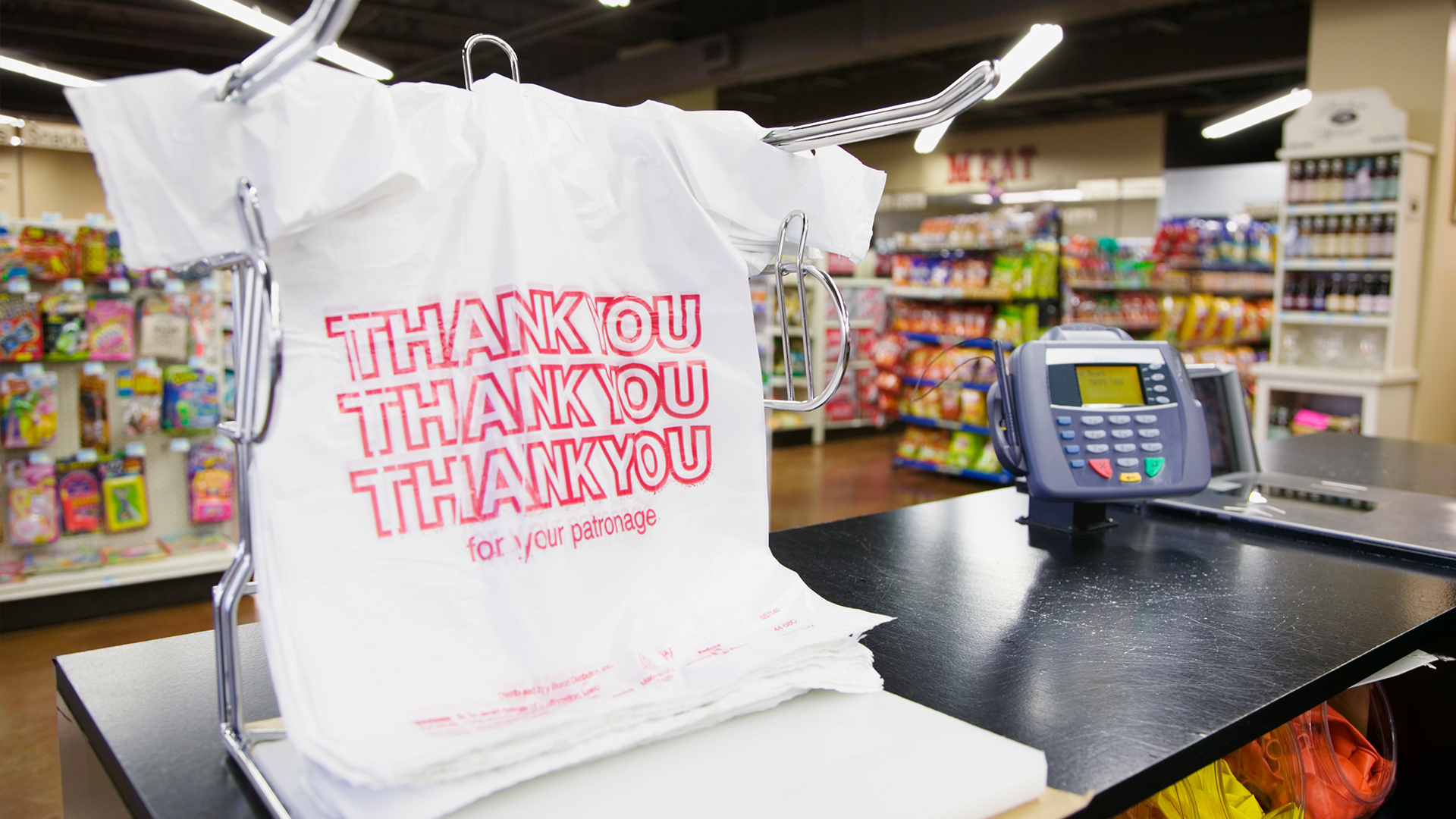
[EMMA STOLTZFUS]
Do plastic bag bans work? The last time you went to the store, what did you bring your groceries home in? If you live in a city or state with a single-use plastic bag ban, you still may have carried your bread and milk in plastic.
Celeste Meiffren-Swango, Beyond Plastic Campaign Director | Environment America
Single use plastic bags, I think have become a poster child for wasteful plastics.
[EMMA STOLTZFUS]
That’s Celeste Meiffren-Swango, the Beyond Plastic Campaign Director with Environment America. She is one of the authors of a recent paper titled “Plastic Bag Bans Work” and is an advocate for banning single-use-plastics.
Celeste Meiffren-Swango, Beyond Plastic Campaign Director | Environment America
They’re constantly getting caught in trees. They’re lining our roadways. They’re polluting our waterways where they can harm wildlife. And so cities and states across the country have started taking action to reduce the use of this ubiquitous but kind of unnecessary product.
[EMMA STOLTZFUS]
According to her report, as of 2021, more than 500 cities across 28 states have a plastic bag ordinance, while this year there are 12 states that have some form of statewide ban in effect. Two of the most recent are in Colorado and Rhode Island, where single-use plastic bag bans went into effect on January first.
Celeste Meiffren-Swango, Beyond Plastic Campaign Director | Environment America
Unfortunately, in a set of the places that have passed bans on single use plastic checkout bags, the plastics industry figured out a way to continue to produce and sell wasteful plastic bags. So our report found that in some places, a loophole actually allowed businesses to replace thin plastic bags with thicker, allegedly reusable ones at checkout for a fee. But a lot of people were only using these thicker bags once, too, before throwing them away.
[EMMA STOLTZFUS]
As a result, some states with plastic bag bans that have this loophole actually saw an increase in plastic waste because of the heavier alternative, reusable in name only, plastic bags. This is apparent in a recent Freedonia Group report, which highlighted how plastic waste in states like New Jersey has tripled in the nearly two years since it implemented its ban, despite touting its law as “the strongest bag ban in the nation.”
To close the loophole, some states require alternative grocery bags to be made out of paper or fabric. Rhode Island for instance requires bags to have a stitched handle, and Colorado sells paper bags for ten cents apiece at point-of-sale. Both states heavily advocate for the use of fabric reusable bags.
On average, a well-constructed plastic bag ban can eliminate almost 300 single-use plastic bags per person per year. Meiffren-Swango’s report also included a calculator where states and cities can figure out how much plastic they could possibly save if they instituted a ban.
Celeste Meiffren-Swango, Beyond Plastic Campaign Director | Environment America
Nothing we use for just a few minutes should be polluting the environment for centuries. And so the bottom line is that we are encouraging cities and states to continue to pass bag bans so that we can reduce plastic waste, cut down on litter and build a cleaner, greener future for everybody.
People across the country are ready to kind of move beyond plastic. And these plastic bag bans really are a huge step in the right direction.







